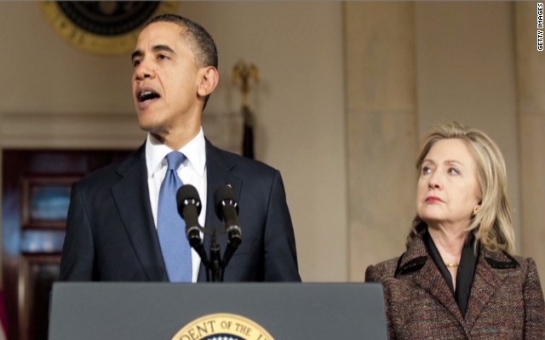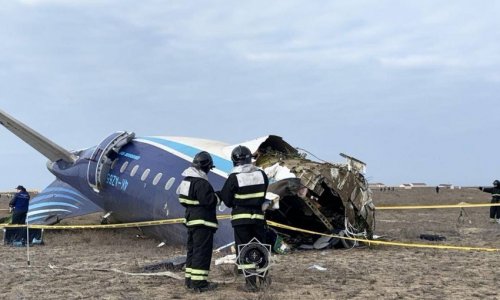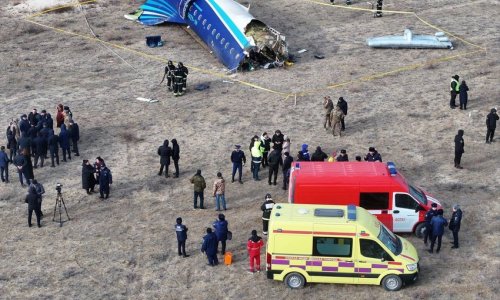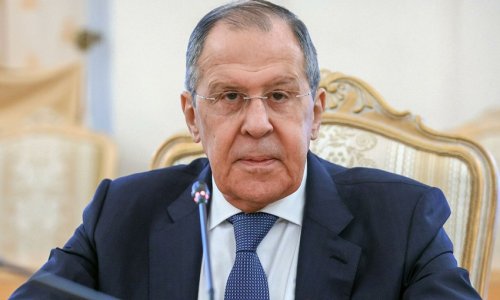Ever since the President uttered the phrase during an off-the-record discussion with reporters earlier this year -- the actual words were a bit saltier and later confirmed privately by administration officials -- foreign policy critics have seized on "DDSS" as a crystallization of the Obama Doctrine.Former Secretary of State Hillary Clinton is only the latest critic of the "DDSS" comment, describing the remark in an interview with The Atlantic magazine as too simplistic."Great nations need organizing principles, and 'Don't do stupid stuff' is not an organizing principle," she said.Clinton called Obama on Tuesday, to "make sure he knows that nothing she said was an attempt to attack him," her spokesman Nick Merrill said in a statement. The two will meet at a party hosted by Democratic Party adviser Vernon Jordan on Martha's Vineyard on Wednesday evening, after she holds a book signing on the island.In an interview with CNN, Deputy National Security Adviser Ben Rhodes insisted that "DDSS" is not the "entire foreign policy" of the Obama administration. But he maintained the expression has substance."It means think carefully before you get into military interventions," he said. "I think that's a lesson of the last 10 years that the American people have internalized -- that we have to be very careful when it comes to the application of military force, that we're not putting U.S. troops in harm's way without a clear plan and limited objectives for that effort."Rhodes said the President did not take the criticism from Clinton personally."I think their relationship is very resilient. They've been through so much together," he said.Shaped by more than a decade of warClinton's apparent support for a more hawkish U.S. posture comes as Obama's foreign policy has absorbed withering criticism in recent weeks. But her potentially more interventionist approach carries its own set of risks, diplomatic and political analysts caution." 'Don't do stupid stuff' ought to be emblazoned on the foreheads of all future presidents and secretaries of state," said Aaron David Miller, a former State Department adviser during both Democratic and Republican administrations.Miller said "DDSS" is less a doctrine than it is a presidential mission statement that is shaped by more than a decade of war."Stripped to its essence, after protecting the homeland, it should be U.S. foreign policy's second commandment," he added."I view that as a political summary ... much like 'It's the economy, stupid,' " Rep. Adam Schiff, D-California, said, comparing "DDSS" to the middle-class battle cry coined by Bill Clinton strategist James Carville during the 1992 presidential election.Schiff said the former secretary of state's comments do not reflect a political break from the President, arguing the perception of a conflict just makes "good copy."The President's strategy on crises ranging from Syria to Iraq and Ukraine offers a sharp contrast to Republicans who "act first and think last," Schiff said."The risks of becoming fully entangled in Iraq are tremendous," he added.The President's cautious approach is nothing new. A line can be traced from "DDSS" to the anti-Iraq war speech he delivered as an Illinois state senator in 2002."What I am opposed to is a dumb war. What I am opposed to is a rash war," Obama said at the time.Scars from 2008 primary still remainIt was that 2002 speech that endeared Obama to the liberal base of the Democratic Party, in part because of then-Sen. Clinton's support for the Iraq war.The policy battle over Iraq that later erupted between Obama and Clinton in their fight for the party's nomination ultimately resulted in a Democrat returning to the White House. But the divide left deep scars between the two camps that were still healing even as Clinton unleashed her critique of Obama's worldview.That difficult history is why Clinton's comments to The Atlantic's Jeffrey Goldberg came as a shock to one senior Democratic strategist, who spoke on condition of anonymity.Specifically disturbing, the strategist said, was the former secretary of state's insistence that Obama's lack of support for the Syrian opposition gave rise to the ISIS militants in Iraq."Why you'd want to do that, I have no idea," the prominent, non-Obama affiliated strategist said of Clinton's plea for more direct U.S. involvement in Syria.Citing the nation's reluctance to plunge back into Middle East conflicts, the strategist added, "Politically, Obama's right."In a flashback to '08, Obamaworld lunged to the President's defense Tuesday, in a tweet that appeared to tweak Clinton."Just to clarify: 'Don't do stupid stuff' means stuff like occupying Iraq in the first place, which was a tragically bad decision," former Obama adviser David Axelrod tweeted.Better job communicating its strategyStill, even the President's own advisers acknowledge that Obama has had a difficult time clearly articulating his foreign policy doctrine.During his overseas trip to Asia this year, Obama used a baseball metaphor to explain his reluctance to intervene militarily against a variety of threats, including Syrian President Bashar al-Assad, who crossed a "red line" set by the President barring chemical weapon use.That caution "avoids errors," Obama said. "You hit singles, you hit doubles; every once in a while, we may be able to hit a home run."After much of Washington pounced on the sports analogy, White House aides began plotting out a more thoughtful speech on American leadership that would be delivered at West Point.Before that address, Rhodes conceded to The New York Times that the administration could do a better job of communicating its strategy."People are seeing the trees, but we're not necessarily laying out the forest," Rhodes said.Obama told the cadets at West Point the U.S. should be willing to intervene, but not overreach, acting alone only when necessary."Just because we have the best hammer does not mean that every problem is a nail," Obama said, opting to switch metaphors.The apparent struggle to neatly encapsulate the President's strategy is not lost on his critics."I do think the administration is showing some signs of a little bit of fatigue," Brookings Institution analyst Michael O'Hanlon said in a recent interview with CNN."It's time for a little more ambition frankly because the world senses that this President is too disengaged," O'Hanlon added.A now more ambitious Obama is engaged in Iraq, risking what his aides have long described as his post-Bush legacy of "ending wars, not starting them."As past presidents have learned in Iraq, it is "easy to get in, hell to get out," Schiff said.(CNN)Bakudaily.Az
The Obama Doctrine: Inarticulate or disengaged?
World
22:00 | 14.08.2014

The Obama Doctrine: Inarticulate or disengaged?
It sounds like advice offered by parents to teenagers on prom night: Don't do stupid stuff. But it also is an important guiding foreign policy principle of the President of the United States.
Follow us !










